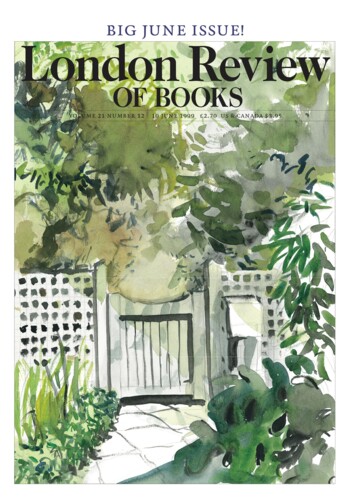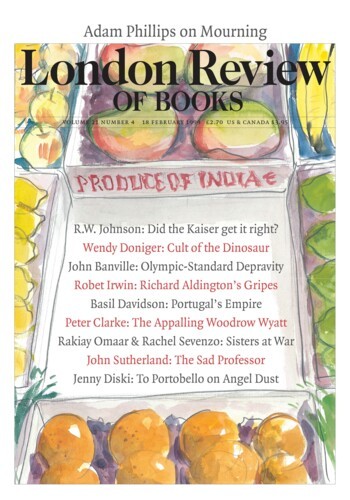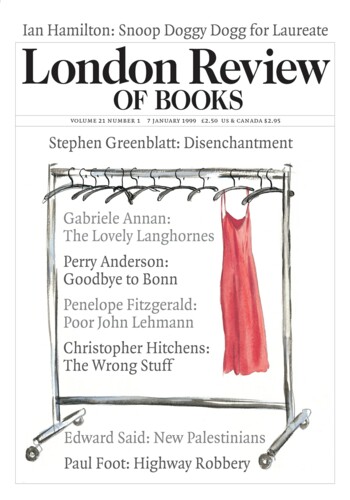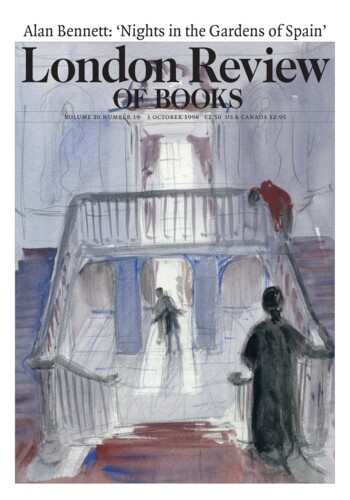At Home in the Huntington: the Isherwood Archive
John Sutherland, 10 June 1999
Writing in the Tablet in 1951, Evelyn Waugh described Christopher Isherwood as the best of those British writers who had ‘captured’ the Thirties. It was not, Waugh being Waugh, high praise. Auden he felt to be a mysterious cove comprehensible only to his pals (among whom Waugh did not number himself). Stephen Spender, Waugh declared, had been granted at birth all the fashionable literary neuroses but his fairy godmother ‘quite forgot the gift of literary skill’. (Once celebrated as the Shelley of the Thirties, he was later described by Geoffrey Grigson as the ‘Rupert Brooke of the Depression’.) Isherwood, he grudgingly conceded, could claim ‘accomplishment’. Isherwood returned the tepid compliment, 12 years later, with a script for the Tony Richardson production of The Loved One. The movie regularly makes the lists of alltime turkeys. Would that my enemy had written a book and I might adapt it for the screen.‘




